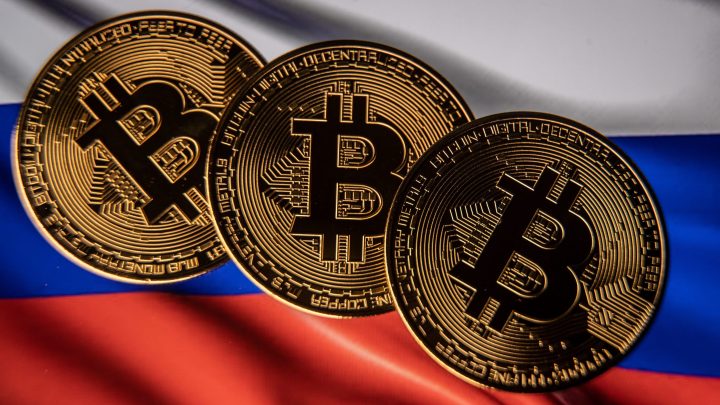
Despite EU crypto sanctions, Russians are still using digital currencies
Despite EU crypto sanctions, Russians are still using digital currencies

Western sanctions against Russia over its invasion of Ukraine have sought to weaken Russia’s economy by targeting traditional financial institutions like banks. But the sanctions have also restricted the ability of Russians to use bitcoin and other digital currencies. Lawmakers want to prevent Russians who have been sanctioned from using crypto to move money out of the country.
Last year, the European Union created new sanctions that completely ban many Russians in Europe from using crypto. But the sanctions don’t always target the people lawmakers intended.
Olga Shkolina, an activist from northern Russia, fled to Poland with her teenage daughter not long after Russia invaded Ukraine. She started a new life in the EU to avoid persecution for her activism from Russia’s government. But sanctions complicated Shkolina’s financial life. Her ex-husband in Russia could no longer send her child support for their daughter after she left the country.
“It’s impossible to send money from Russian banks to European ones,” she said.
The couple found a way to work around the restrictions. Shkolina’s ex started sending her the payments using cryptocurrency — which is decentralized, not connected to a bank. She would then convert her crypto into cash, through what’s called a crypto exchange.
But last winter, those crypto child support payments were blocked. Russians, like Shkolina, were suddenly booted off major crypto exchanges after new EU sanctions took effect.
The sanctions greatly affect Russian citizens, like Shkolina, who live in the EU. The goal of the restrictions on crypto is to stop sanctioned Russians from finding loopholes to move money out of Russia to the West.
But it turns out, within Russia crypto can flow relatively freely.
“It is still fairly easy to move rubles to different cryptocurrencies and vice versa,” said Adam Zarazinski, the CEO of the cryptocurrency analytics company Inca Digital.
People living in Russia can still convert rubles into crypto through certain exchanges that are registered outside the U.S. and Europe, Zarazinski added.
Some Russians have even held fundraising campaigns where supporters can use crypto to make donations that help fund Russia’s war against Ukraine.
“A number of pro-Russian groups have raised crypto assets to the tune of $20 million,” said Arda Akartuna, senior cryptocurrency threat researcher at Elliptic.
The problem is smaller crypto exchanges can still operate within Russia, said Akartuna. Western lawmakers have been cracking down on some exchanges, but plenty of crypto is still getting through that funds Russia on the battlefield.
Ironically, the crypto sanctions are also having a large effect on Russian anti-war activists who also raise money for their causes through crypto.
“Unfortunately, Russians that are leaving Russia and against the war are getting swept up in the mix,” Zarazinski said.
Many Russians who strongly oppose the war are living in Europe now after fleeing Russia. But the simple fact of them being Russian means many of their crypto wallets are now blocked.
There’s a lot happening in the world. Through it all, Marketplace is here for you.
You rely on Marketplace to break down the world’s events and tell you how it affects you in a fact-based, approachable way. We rely on your financial support to keep making that possible.
Your donation today powers the independent journalism that you rely on. For just $5/month, you can help sustain Marketplace so we can keep reporting on the things that matter to you.











